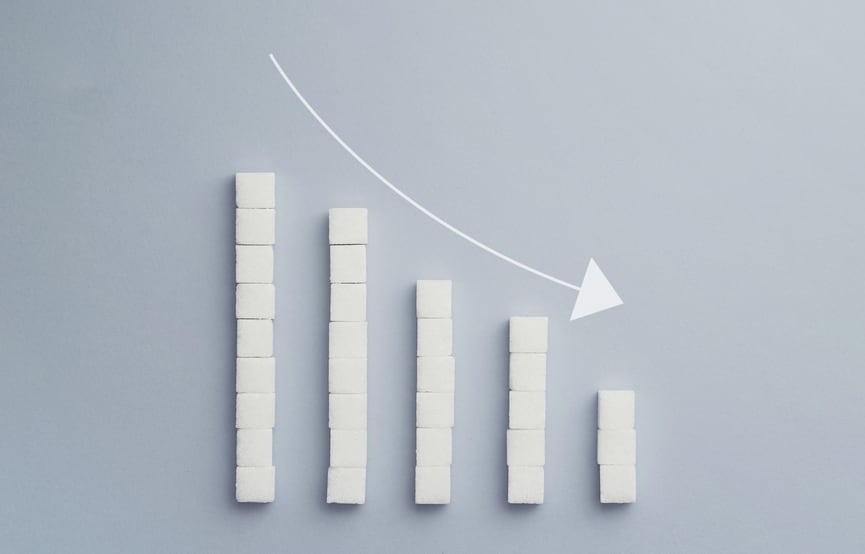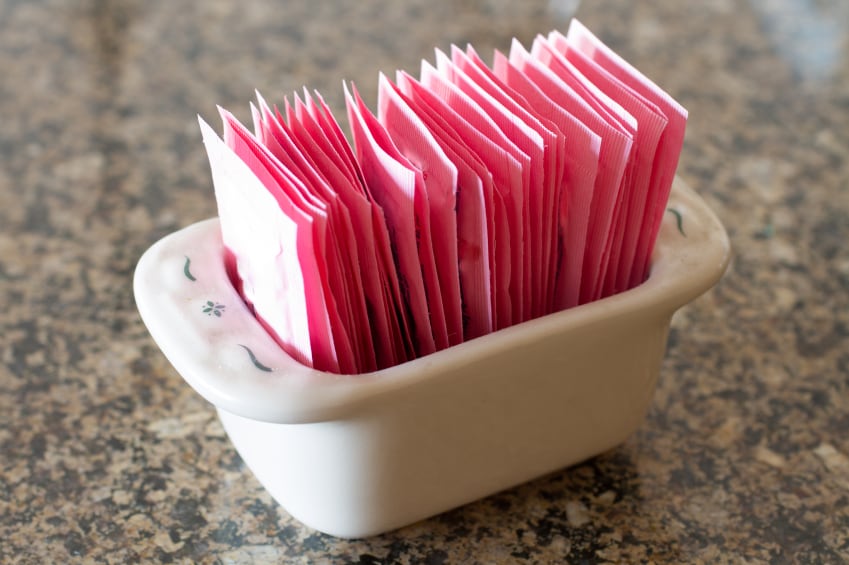Debate that centres on the effect of low calorie sweeteners on gut bacteria continues to rage on as two new papers could find no evidence of a relationship at doses relevant to human use.
Despite regulatory approval, a review carried out by the University of Granada in Spain highlights a number of long-term studies that point to artificial sweeteners as contributing to the onset of obesity, type 2 diabetes (T2D), and cardiovascular disease.
Within nonnutritive sweeteners (NNSs), the Spanish research team highlighted research that noted only saccharin and sucralose shifted the populations of gut microbiota, in a 2014 study led by the Weizmann Institute of Science’s Dr Jotham Suez.
The study pointed to the positive correlations found between noncaloric artificial sweeteners (NAS) consumption and the Enterobacteriaceae family, the Deltaproteobacteria class, and the Actinobacteria phylum.
Additional findings amongst volunteers that consumed NAS found a 30% decrease in the glycaemic response suggest that its consumption, and especially saccharin at a maximum dose, might have a “deleterious effect on glucose tolerance through changes to the intestinal microbiota”.
The review concluded though that further studies were needed to elucidate whether the changes observed in the intestinal microbiota in animals were present in humans.
The team highlighted the need to perform well-designed, long-term, double-blind, placebo-controlled, randomized clinical trials with appropriated doses to evaluate the sweeteners’ potential impact on intestinal microbiota.
ISA response
It was a view touched upon by the International Sweeteners Association (ISA). Commenting on the high dose effect of saccharin and sucralose on gut microbiota composition, ISA noted author observations that stated the clinical relevance of these findings in humans was not clear.
“The authors note that more human studies are needed to clarify these preliminary observations,” the Association said.
“The authors also state that research to date shows that sucralose is safe and generally note that all approved sweeteners critically evaluated by the FDA, EFSA, and Codex Alimentarius are considered safe.”
Saccharin and sucralose
Another recently published paper points to dietary changes unrelated to low calorie sweeteners’ consumption as more likely to be the major determinant of change in gut microbiota composition.
“The data provide clear evidence that the major determinants of changes in microbiota numbers and phyla result from fairly large changes in intakes of different types of nutrients,” in a Calorie Control Council-financed review headed up by the University of Reading’s Dr Ian Rowland.
“The changes to the microbiota most likely result from differing outcomes of metabolic processing of these nutrients, resulting in different intra-colonic metabolic by-products, possible changes in pH and osmotic character, and altered numbers and proportion of phyla.”
Referencing Dr Rowland’s review, the ISA noted that critical study design problems in most of the animal studies referenced as evidence made it impossible to reliably translate findings from these studies to humans.
“Moreover, available research does not support a reasonable mechanism by which approved low calorie sweeteners could exert a clinically meaningful effect on health by interaction with the gut microbiota,” they pointed out.
“For example, long-term studies in animals at doses far in excess of those that would be consumed by people show sucralose to be safe, indicating no adverse effect on gut microbiota health or function, and research shows that sucralose is not an energy source for, nor otherwise metabolized by, gut microflora.”
Conflicting study
Findings by the two reviews are in contrast to a study published late last year, which demonstrated artificial sweeteners’ effects on gut microbes.
Researchers at Ben-Gurion University of the Negev (BGU) in Israel and Nanyang Technological University in Singapore found toxicity of 6 artificial sweeteners and 10 sport supplements containing these artificial sweeteners.
The bacteria found in the digestive system became toxic when exposed to concentrations of only one milligram (mg)/millilitre (ml) of the artificial sweeteners.
“This is further evidence that consumption of artificial sweeteners adversely affects gut microbial activity which can cause a wide range of health issues," said Professor Ariel Kushmaro, John A. Ungar Chair in Biotechnology at Ben-Gurion University.
“These findings resulted from an in vitro experiment, which exposed bacteria to very high concentrations of low calorie sweeteners out of the human body,” countered the ISA.
“It is important to mention that these are in vitro testing conditions which could have caused reactions that would not be seen with real-life exposure conditions in humans, meaning that under such conditions, the study cannot be predictive of what would happen in real life use of sweeteners.”
EFSA approved
Critical evaluation by the European Food and Safety Authority (EFSA), the Food and Drug Administration (FDA) and Codex Alimentarius have concluded that low calorie sweeteners are safe and well tolerated.
To date, EFSA has approved 11 high-intensity artificial sweeteners for human consumption for use in foods and drinks.
These are acesulfame K (E-950), advantame (E-969), aspartame (E-951), aspartame-acesulfame salt (E-962), cyclamic acid and its sodium and calcium salts (E-952) and neohesperidin dihydrochalcone (E-959).
Other approved sweeteners include neotame (E-961), saccharin (E-954), steviol glycosides (E-960, including 10 different glycosides), sucralose (E-955), and thaumatin (E-957).
Source: Advances in Nutrition
Published online: doi.org/10.1093/advances/nmy037
“Effects of Sweeteners on the Gut Microbiota: A Review of Experimental Studies and Clinical Trials.”
Authors: Francisco Javier Ruiz-Ojeda, Julio Plaza-Díaz, Maria Jose Sáez-Lara, Angel Gil
Source: Food and Chemical Toxicology
Published online: doi.org/10.1016/j.fct.2018.12.005
“Assessing the in vivo data on low/no-calorie sweeteners and the gut microbiota.”
Authors: Alexandra Lobach, Ashley Roberts, Ian R.Rowland


